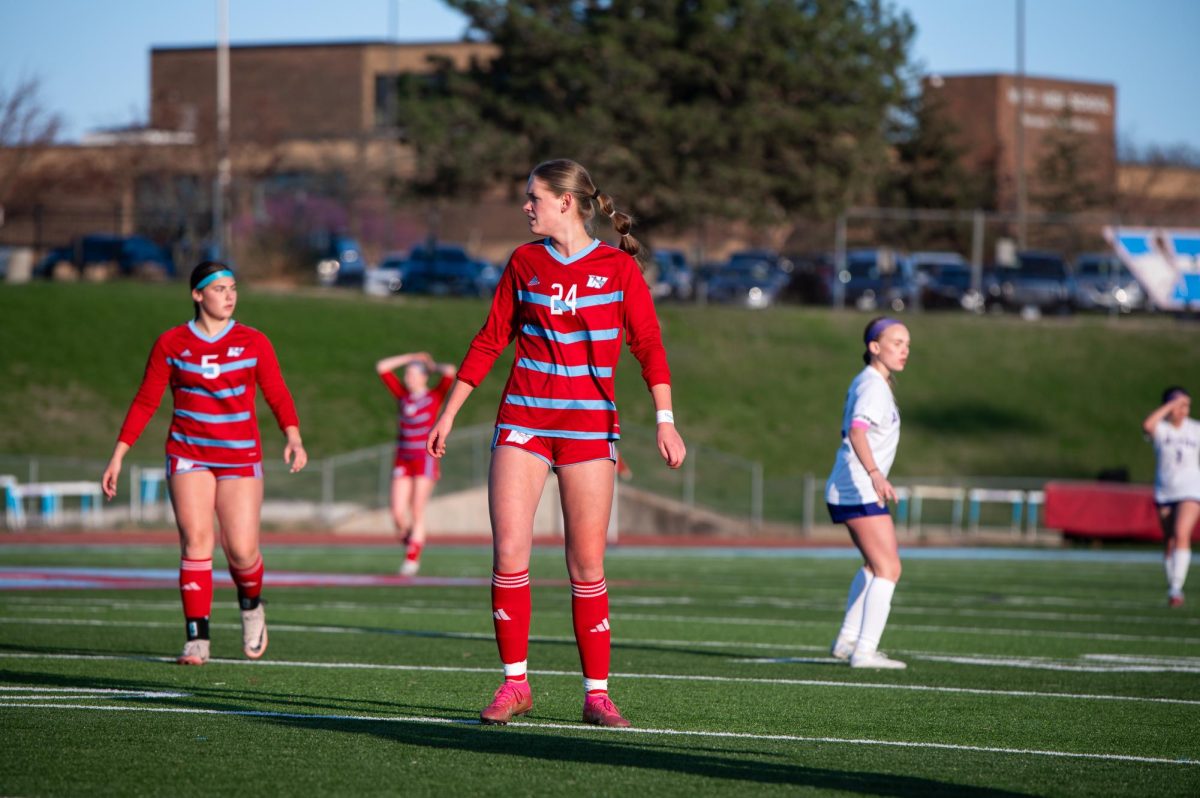An ordinary morning for Ms. Wayland’s and Mr. Chazen’s first hour Modern U.S. history class turned into a lifelong memory on April 29, 2015 when Tom Irwin, a Vietnam veteran and Marine shared his experience in the war.
“He explained things that we had read from the textbook, but I felt like I was hearing it for the first time,” said freshman Saar Zachary, as he described his experience from the guest speaker.
Contrary to what students had thought, he was very open to the questions students had to ask.
“Learning from the mistakes we made, such as mistreating them when they came back and not fully appreciating their service was one of the things I learned from his visit,” freshman Bri Vietmeier said. “When you meet someone like him, who was a part of something in our history, you really know that it was real; the good and bad.”
Gathered in Wayland’s classroom, students had the opportunity to listen to his story before and after he was drafted into the war.
“I think we all were a little nervous because we didn’t know if he had any disabilities prior to his visit or any severe mental illness,” freshman Christina Henderson said.
Christina Henderson, freshman: How were you treated when you were sent home during the Vietnamization?
Irwin: On my flight home, we all were tired and longing to leave Vietnam. When we got back, we were welcomed by our family, and together we were safe. I think the main reason why people have given more respect to our soldiers today is because of the Vietnam War. Other soldiers coming back from Vietnam might have not experienced the same thing I did, but due to the Vietnam War, people have been educated and give more respect to the ones serving currently.
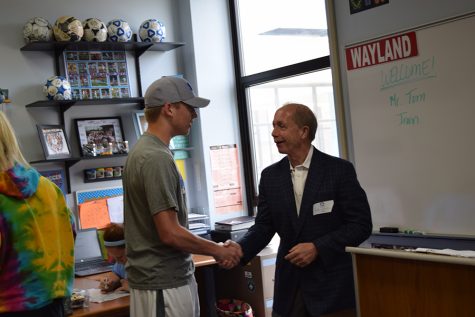 Ryan Gansen, freshman: What was it like training as a Marine?
Ryan Gansen, freshman: What was it like training as a Marine?
I volunteered to join in the Marine Corps when I was 17. Almost all of the time, people who are in the Marines volunteered. I went to Paris Island, which was in South Carolina. It is known to be the toughest recruit training facility in the world. The basic training was one of the hardest things you could do physically andmentally. They are making you into soldiers. Breaking you down so that when you are on the field, you can take the strength you had in order to survive and make it out alive.
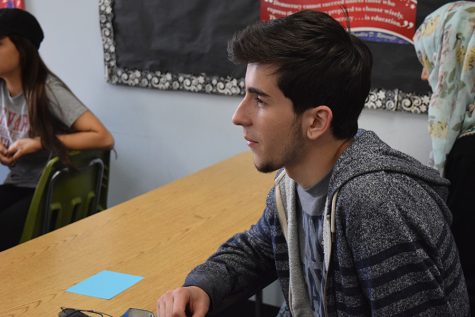 Pietro Giganti, junior: Did you get any severe injuries from the war, and if so, what?
Pietro Giganti, junior: Did you get any severe injuries from the war, and if so, what?
Almost everyone coming back from a war has some sort of problem, whether it be physically or mentally. We were told from our officers and higher soldiers not to tell anyone about the things we had done in Vietnam, and to not share our feelings or issues. PTSD was a common illness for soldiers coming back from Vietnam, but thankfully more of them are now being treated and are reaching out for help. When we got the ammunition one time, they come in crates and they are in steel bands. You have to cut the steel bands to take the ammunition off. I was with another Marine, and I told him to cut it at the bottom instead of the middle of the band because it whips around wildly. I can still see it flying around, and I remember closing my eyes right when it had cut below it. There was a lot of blood, but fortunately I was taken to a hospital nearby. The most amazing thing about this whole injury was years later after Vietnam, when I had been in Normandy, France for a ceremony for American veterans. I was sitting next to this man, and it was slightly awkward so he made conversation with me. He noticed I was a marine and asked where I had served. He was at the ceremony for serving in the hospital that I had been taken to when I got my eye injury. It was amazing that I met a man who had been in the same room as me, helping all of the soldiers and I in the war. He didn’t clean my eye, but he recalled seeing me and remembered my visit. We thanked each other for the service we had done. I wish more people had seen that when I was serving. This world is so small but there’s so much to learn.


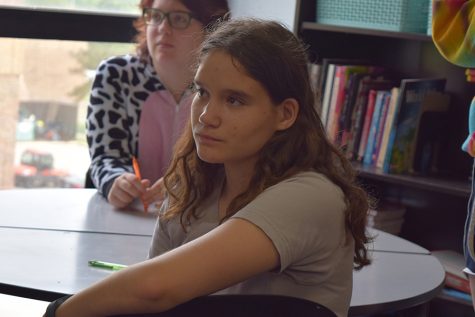
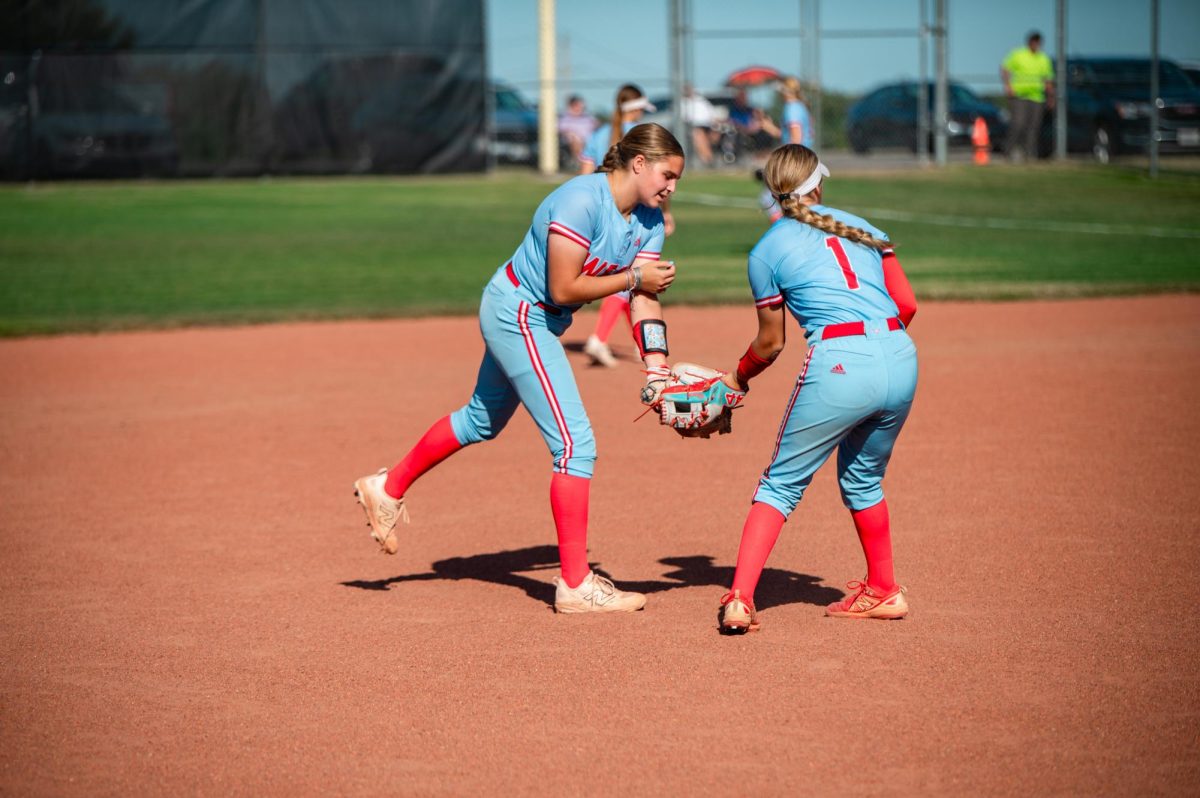
![Smiling in a sea of Longhorns, Fox 2 reporter Ty Hawkins joins junior Darren Young during the morning Oct. 3 pep rally. The last time West was featured in this segment was 2011. “[I hope people see this and think] if you come to [Parkway] West, you will have the time of your life because there are so many fun activities to do that make it feel like you belong here. I was surprised so many people attended, but it was a lot of fun,” Young said.](https://pwestpathfinder.com/wp-content/uploads/2025/10/Edited2-1200x798.jpg)

![Blue lights shining brightly, senior Riley Creely beatboxes into the microphone. Creely and the group began the performance in front of the blue lights, sparking interest from the audience. “The pep rally performance was fun. I got to beatbox for the first half of the song, which was hype. I liked to look into the student section [while I performed],” Creely said.](https://pwestpathfinder.com/wp-content/uploads/2025/09/DSC_5085-Enhanced-NR-1200x799.jpg)


![Hugging senior Ella Wheeler, senior Jamaya Love beams after scoring a touchdown at the Powderpuff football game on Sept. 11, putting the seniors on the scoreboard with a score of 6-2 above the juniors. The seniors went on to capture the victory with a final score of 12-2. “I was actually gassed [at this moment]. I was so tired. But, everyone on the sideline, all my teammates and everybody in the stands were cheering,” Love said.](https://pwestpathfinder.com/wp-content/uploads/2025/09/DSC1735-Enhanced-NR-2-1200x799.jpg)
![Raising her hands in the air, freshman Jillian Sternhagen follows Mr. Mooney’s lead during an activity Aug. 15 at freshman orientation. Surrounded by other freshmen, Sternhagen learned an “A O E day” chant to help remember their new weekly high school schedule. Students participated in several activities to get to know each other, the school and the upperclassmen. “We got to tour the school and learn where everything in our schedule is. The energy [at orientation] was fun; the leaders were peppy and got us excited,” Sternhagen said.](https://pwestpathfinder.com/wp-content/uploads/2025/08/DSC_0145-1200x798.jpg)
![Shifting global trade, President Donald Trump’s tariffs are raising concerns about economic stability for the U.S. and other countries alike. “[The tariffs are] going to pose a distinct challenge to the U.S. economy and a challenge to the global economy on the whole because it's going to greatly upset who trades with who and where resources and products are going to come from,” social studies teacher Melvin Trotier said.](https://pwestpathfinder.com/wp-content/uploads/2025/05/MDB_3456-1200x800.jpg)
